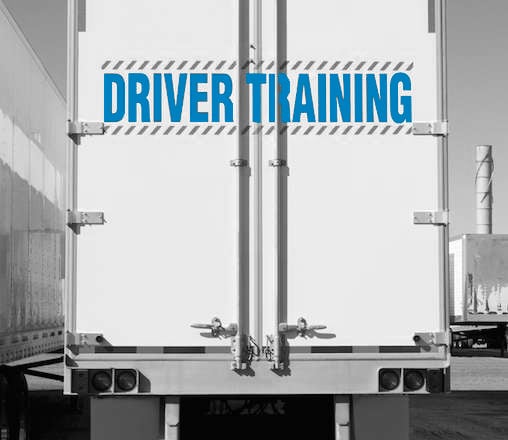
February 7, 2020 is the compliance date for entry level driver training (ELDT) regulation changes for new drivers. The Federal Motor Carrier Safety Administration (FMCSA) has amended the regulations, adopting a new Class A Commercial Driver’s License. This includes a theory instruction upgrade curriculum that reduces training time and costs currently incurred by upgrading a Class B commercial driver’s license (CDL) to a Class A CDL.
Federal trucking regulators have proposed a two-year delay for compliance with certain provisions in the Entry Level Driver Training rule to allow more time for development of the secure electronic transfer of information to the certified training provider registry and state driver licensing agencies.
From the FMCSA website:
There is a new proposed compliance date of February 7, 2022 for two “key” provisions of the 2016 entry-level driver training (ELDT) final rule: 1) the requirement that training providers upload driver-specific training certification information (i.e., proof of completion of applicable theory and behind-the-wheel (BTW) training) to the Training Provider Registry (TPR), and 2) the requirement that the State Driver Licensing Agencies (SDLAs) confirm driver applicants are in compliance with the ELDT requirements prior to their taking a skills test for a Class A or Class B commercial driver’s license (CDL), or a passenger (P), or school bus (S) endorsement, or prior to taking the knowledge test to obtain the hazardous materials (H) endorsement. This two-year extension of the compliance dates for parts of the rule is necessary to allow the Agency time to complete full functionality for the TPR and to establish the electronic means by which the ELDT certification information will be transmitted to the SDLAs. The compliance date extension will also permit the SDLAs time to make necessary modifications to their information technology (IT) systems that would allow them to receive ELDT certification information from the TPR.
New drivers would still have to comply with the final ELDT rule’s training requirements beginning on Feb. 7, 2020.
The implications:
Abigail Potter, Manager of Safety & Occupational Health Policy at the ATA says, “American Trucking Associations strongly supports the entry level driver training rule but we definitely have concerns that delaying these two very important aspects of the rule could have a significant impact on the enforcement and the effectiveness of the rule.”
The delay would likely eliminate the responsibility of state driver licensing agencies to verify that new drivers had completed all their required training before issuing a CDL, Potter said. “There’s no requirement for the licensing agencies to enforce the ELDT rule when they issue a CDL,” Potter added.
The Commercial Vehicle Training Association responded with a statement: “Unfortunately, we believe the decision to delay the individual certification is particularly problematic for enforcement and safety reasons. CVTA urges the FMCSA to consider establishing a database to accept individual certifications.”
Safety Programs that focus on recognizing and rewarding drivers for their efforts have been particularly helpful in reinforcing company safety measures and compliance. Done right, these programs improve two-way employee communications, enhance training, and improve employee retention of training information. Contact us today to get started in reviewing or constructing an effective safety program for your organization. Or – watch our latest Safety & Wellness Webinar!





0 Comments